J Geils Blue Oyster Cult at Long Island Arena
Ah, the live album. The gatefold sleeve, plastered with tons of live pics of your favorite band, holding four sides of music recorded live on stage, where it really mattered, performing before an audience of worshiping fans. The best live records drop you in the front row, where the thick, humid air smells like a mixture of weed, puke, and sweat; where your ears take a pounding from a PA system bigger than your house as the crackle and pop of firecrackers echoes through the arena. Some say that the 1970s was the Decade of the Live Album, and if any single year should hold that same distinction, it's got to be 1978, when an unprecedented number of live sets arrived in record stores (remember them?) to add color to the soundtrack of our youth.
Call it The Frampton Effect. 'Frampton Comes Alive!', Peter Frampton's 1976 double-live release, spawned 2 hit singles and topped the Billboard charts for a whopping 10 weeks, and went on to become the best-selling album of that year. The record remained in the Top 100 for 97 weeks, well into 1977. Live albums by Bob Seger, The J. Geils Band, Joe Walsh, and Rush also reached deep into the Top 40 in 1976. The success of these records had a significant impact on the industry. And in the world of pure Hard Rock, the Top Ten success of Kiss and their 'Alive!' and 'Kiss Alive II' albums was also hard to ignore.
At a time when the rockers of the era were struggling mightily to get on the radio, the monster success of Frampton's live album suggested there might be another way to break through. The Record companies saw the gazillions being made from records that cost relatively little to record. And so mobile recording units rolled out for virtually every tour that hit the road in 1977; those recordings would bear fruit the following year. Notable live records from Alice Cooper, Rainbow and Foghat appeared in '77, but the sheer number of HR/HM live albums released in 1978 is stunning… I count no less than TEN significant live records hitting the market between January '78 and January '79.
1978 kicked off with an expanded field recording of Ted Nugent captured in the wilds of America in '76 and '77. Unleashed in January, 'Double Live Gonzo!' showcases The Nuge's big guitars and even bigger mouth. His guitar prowess already firmly established, Terrible Ted's live album is peppered with politically incorrect between-song raps that have become the stuff of legend (just ask Atlanta band Nashville Pussy). But the real value in 'Gonzo' lies in it's capture of Nugent's classic-era band in a live setting, and how it provides Nugent-the-guitarist the opportunity to put up or shut up… And as we know, Ted never shuts up. I remember walking around with friends, blasting this out of a portable 8-track player, feeling all badass as Nugent's raunchy raps echoed off my neighbors' houses.
After the Nugent extravagonzo, there came an almost 5-month lull, the calm before the storm of live releases that would hit in the second half of the year. Thin Lizzy opened the floodgates in June with 'Live and Dangerous', a 2-record set that reached the #2 spot in the UK. While it's safe to say that Nugent's 'Gonzo' is 100% pure NUGE, Thin Lizzy's 'L&D' is another story. Debate endures regarding just how much of this album is 'live'… but, seriously, who cares? What matters is the end result, and 'Dangerous' is a worthy celebration of the Lizzy experience. Shamefully short at just 50 minutes, it's overflowing with fantastic songs played with charisma, passion, and flair. Suspend your disbelief and enjoy the show.
Recorded in Japan during guitarist Uli Roth's final two shows with Scorpions, 'Tokyo Tapes' came out in August as a Japan-only release. Nothing like waiting until the last minute to capture the Uli-era Scorps live! I didn't catch this one until it was released domestically the following year, but when I did, mind = blown. There is some truly jaw-dropping guitar playing within these grooves, and each and every one of us should take a moment to thank their higher power that Dieter Dierks and RCA records rolled tape during Roth's final 48 hours with the band. 'TT' contains some jarring edits that break the 'concert experience' feel, but overall this collection really cooks.
Also in August, Sammy Hagar decides to return to his monstrous Montrose roots and release a live album balls-out with scorching rockers. 'All Night Long' was recorded in San Francisco, San Antonio, San Bernardino, Santa Cruz and Santa Monica… I'm not kidding. I snapped this one up after learning that the band on the record was 3/4 of Montrose, and the track list includes two songs from the mighty Montrose debut. The Red Rocker keeps this single-disc live outing tight and punchy, and Sam reveals himself to be a smokin' guitarist. 'All Night' is the first and only live album that I'm aware of where the final song fades out —while the band is still playing! Like having to leave the concert before it's over because your ride wants to be home early.
A few weeks later in September, Blue Oyster Cult would offer up their second live album, 'Some Enchanted Evening'. Like Hagar, BOC would limit themselves to a single disc, and much to this young listener's disappointment, include two covers. With a catalog as deep as BOC's, why waste precious space on somebody else's tunes? Where's 'Tattoo Vampire'? Where's 'The Golden Age of Leather'? And what about 'Dominance & Submission'?? Thankfully, the stellar version of 'Astronomy' included is worth the price of admission all by itself. Despite the dubious song selection, 'SEE' would somehow become best-selling album in the Cult's catalog. Go figure!
I remember walking into my local record store in early October and spotting Cheap Trick's 'Cheap Trick At Budokan' high on the wall behind the counter, with a $27 price sticker on it. CT had just released 'Heaven Tonight' in April; I was completely blindsided by this mysterious live record. '27 bucks!?' I exclaimed. The clerk explained that it was a Japanese import, and wasn't coming out in the US. Shit. Somehow the 14-year old me came up with the 30 dollars (I seem to remember rolling coins…) and snagged it off the wall before anyone else did. Woohoo! 'Budokan' was another single-disc live record, (in a gatefold sleeve!) and featured three songs we'd never heard before. Allowance money well spent.
I have come to appreciate Aerosmith's 'Live! Bootleg', but back in October of '78, I was disappointed. 'Bootleg' dispenses with the 'concert recreation' feel that most of the live LPs of the era went for; instead, it serves as a live retrospective, featuring recordings from as far back as 1973 and right up to March's 'California Jam II' concert. It's a mixed bag; performances by young scrappers in Boston clubs segue into recordings from the biggest stadiums on the planet, not in chronological order, all adding up to kind of a jumbled sonic documentary of the band's heyday. Teenaged me wanted something more like what Lizzy or Cheap Trick had delivered. Still, two live albums from two of my faves in one month was pretty killer. Wait, what? THREE??
With 'Bootleg' and 'Budokan' still in heavy rotation on my turntable, Australian upstarts AC/DC joined the fray in late October with 'If You Want Blood… You've Got It'. The band had released their 'Powerage' album back in May and I was instantly hooked; this live album followed a mere 5 months later. Recorded at the Glasgow Apollo (see also: Status Quo's 'Live!', portions of Rush's 'Exit: Stage Left') before an absolutely rabid audience (ANGUS! ANGUS! ANGUS!), 'Blood' is a sweaty, raunchy workout that captures the band's stage show as-is. I remember riding my bike home from the record store with this album clutched to my chest, trying not to bang it around and ding up the album cover. Which reminds me of a story…
So I'm at the record shop, and spot the record, marvel at it's totally awesome front and back covers, and head to the front counter, where the clerk (let's call him Steve) checks out the cover, and starts laughing. He says 'You don't really want to buy this piece of crap do you?' I say, um, yeah, I do, and he starts yelling to another employee, 'Hey man, have you seen this cover? HAWHAWHAW!!' He looks at me once again and says 'Really?' Just then an older gent walks up to us (I presume was the owner or manager) and tells Steve 'meet me out back in a minute'. Steve, with an *Oh Shit* look on his face, heads to the back room. The owner/manager rings up my sale, smiles and says 'AC/DC! Cool!' Never saw Steve there again. True story.
At some point in 1978 (details are scant) came a single-disc live LP from Frank Marino and Mahogany Rush. This is another record that I didn't get hip to until a few years after it's release. Marino was largely written off as a Hendrix clone decades ago, a stigma that prevented him from ever achieving the mainstream success enjoyed by his peers… although Frank Marino is entirely without peer as a rock guitarist. This guy OWNS every other rock player of the era. On the imaginatively-titled 'Live', Marino, backed by his sturdy rhythm section, blazes through hippie-trippy highlights from his catalog, then shoots himself in the foot by including a Hendrix cover. The liner notes for a 2018 re-issue claims that there are no overdubs on this puppy, but hey, who knows. Call this one Single Live Gonzo.
As if to hammer home the fact that 1978 really was the Year of the Live Album, CBS Records released 'California Jam II', a selection of highlights from the second Cal Jam concert that took place back on March 18. The 2-record set included tunes from Aerosmith, Nugent, Heart and Mahogany Rush. Dave Mason, Santana, Jean Michel Jarre and Rubicon (with Jack Blades and Brad Gillis, pre-Night Ranger) also appear. (Bob Welch and Foreigner played the show, but didn't make the record, as they were not signed to one of CBS' labels.) But it's the hard rockers who dominate the set, of course: Nugent gives us live versions of two songs that didn't show on 'Gonzo', Aerosmith gift us with one that didn't make 'Bootleg', and Marino wipes the floor with all the other guitar slingers on the bill. Worth hunting down on vinyl, as the album has never been released on CD.
As if TEN live albums in one calendar year wasn't enough, the Gonzo just kept on comin', a residual effect that would carry through much of '79. First up: I caught Cheap trick at Boston's Orpheum Theater in December '78, and was blown away by opener UFO. A few weeks later, I took the bus (it was January; my bike wasn't feasible) to the record store, headed for the end of the alphabet, and found the just-released 'Strangers in the Night' double album. The lineup I saw featured Paul Chapman on guitar, but 'SITN" captures Mad Michael Schenker's final swing with the band. An instant classic, and possibly the finest album covered here. A shame that a re-arranged re-master is the only way to purchase this album today, as the original Chrysalis version is flawless.
Also in January of '79, Scorpions finally release 'Tokyo Tapes' in the US. With both Uli Roth and Michael Schenker long gone before either 'SITN' or 'TT' are released, the Scorps/UFO live albums became indispensable documents of a bygone era. Then, in early February, the suits at CBS wise up and release Cheap Trick's 'Cheap Trick At Budokan' domestically as well. The Japanese version had become the biggest-selling import album of 1978, so CT's next studio record ('Dream Police') was shelved to allow for 'Budokan's release, and the rest is history. Oh, and in April, the Ramones released the double 'It's Alive' set… but not in The States, where it wouldn't be released until 1995 on CD.
Queen's 'Live Killers' hit the bins in June. Here again, the now-15-year-old me was a little disappointed; Queen's studio records were so elaborately constructed that to me it didn't sound like Queen (ex: during 'Bohemian Rhapsody', a tape of the operatic a capella section was played after the band hastily exited the stage, and that moment plays very awkwardly on a live album). But what I grew to understand is that it does sound like Queen, as this is exactly what the band really sounds like, and in this context, stripped of the indulgent studio magic that adorned their studio records, a great live band comprised of supremely talented performers is revealed.
The Pat Travers Band kicked our asses over the summer of 79 with their single-disc live set, 'Go For What You Know', and their version of 'Boom Boom (Out Go the Lights)' became a minor radio hit. A double-disc might have been much, but would have allowed for the inclusion of PTB's roof-raising live version of 'Statesboro Blues', or a live 'Life in London'. The syngery between guitarists Travers and Thrall is stunning, and the chops on display here are phenomenal. This young lad found the myriad tones and effects the two employed positively hypnotic. But it's not just the guitars that impress here; some of the drumming on GFWYK has to be heard to be believed. Mars was no slouch on the bass either. Where's the expanded remaster??
This unprecedented super-cluster of live releases comes to a close in September of 79, when The Beast that is Priest release 'Unleashed in the East'. Live? Studio? Overdubbed vocals? Again— WHO CARES. The record is simply awesome. At the time, this was the heaviest metal I had ever heard. This single-disc wonder should have been– and could have been –released as a double album, had all the bonus tracks and B-sides culled from the same shows been utilized. As-is, this record explodes with state-of the art, pure of heart, flag waving HEAVY METAL, released at a time when it was definitely not cool to be tagged as such.
WOW. Fifteen live albums from just about all of my favorite bands in a year and a half! You couldn't leave your house without stepping on a live album. It was almost as if Heavy Metal's underlying strategy was to 'wait out' Punk Rock; that the hard rockers of the era conspired together to take some time off and reassess. Whatever the reason, this deluge of live gonzo makes 1978 (and half of '79) a standout year in 70s Metal, despite the fact that the rest of the music world was preoccupied with either Punk or Disco, and most critics and journos had decided that Metal was over… One month after the release of 'Unleashed in the East', the cover of the Oct '79 issue of CREEM Magazine blared: "Is Heavy Metal Dead?" No, stupid, Heavy Metal is LIVE!
AC/DC OFFICIAL NEWS ANNOUNCEMENT
BIGGEST ROCK BAND IN WORLD TO RETIRE ON TOP: AC/DC CALLS IT QUITS January 28 2009
Hot on the heels of their most successful release ever, fifteenth studio album 'Black Ice' (Sony), Australian hard rock band AC/DC have decided to end the band after touring in support of what will now be their final record. The band feels strongly that it would be impossible to top the worldwide success of 'Black Ice', and would rather wind up their career on a high note. Despite the fact that Black Ice was released exclusively in physical formats, and only through Walmart in North America, 'Black Ice' peaked at No. 1 in 29 countries, including Australia, Canada, the United Kingdom and the United States. The record shipped 6 million copies worldwide by December. "This is gonna be tough to beat," says guitarist Angus Young. "You gotta know when to end it, right? This seems like a pretty good time to call it a day, before we embarrass ourselves!." Expect AC/DC's farewell tour to wrap up in 2010, after which the band will enjoy a well-deserved retirement.
FOR IMMEDIATE RELEASE
AEROSMITH DISBANDS, CITES INABILITY TO WRITE SONGS WHILE SOBER September 4th, 1986/Framingham, MA
Boston-based Hard Rock band AEROSMITH have announced they are disbanding. After attending rehabs and declaring themselves 100% sober, the band has discovered they are utterly incapable of writing Aerosmith music. Last year's mediocre 'Done With Mirrors' was written while the band tried to appear sober; writing the next record completely without the aid of illicit substances has yielded disappointing results. Manager Tim Collins and Geffen Records A&R John Kalodner enlisted an army of 'song doctors' to help write a follow-up, but the band flatly rejected the idea. "Now that I'm straight all the time, I just don't feel like a badass anymore. We just aren't Aerosmith without the drugs", said guitarist Joe Perry. "It's been a great ride, but I guess it's over," added vocalist Steven Tyler. "We're clean and sober now, but our mojo ain't workin'. Consider us all on permanent vacation."
BULLETIN: DATELINE 6 NOV 1978
KISS ANOUNCES RETIREMENT, FRANCHISE PLANS
Legendary theatrical rock group KISS will retire from writing and performing early next year, inside sources say. The infamous shock rock quartet plan to expand KISS-related activities in other avenues. All four band members have signed on to star in a Saturday morning children's variety show called 'The Rockin' Adventures of KISS!', which is slated to debut in June of next year on. KISS will also enter the franchise market, with different musicians from across the country donning the costumes and make-up, allowing different versions of KISS to operate in different regions (KISS Vegas, KISS LA, etc). KISS has also signed an agreement with Disney to present nightly KISS concerts using animatronic versions of KISS in both theme park locations. Says Gene Simmons, "While there will be no more KISS records, the brand will continue and expand. Because it's all about the brand. And the fans, right. The brand and the fans."
June 12 1984 Hollywood CA
FOR IMMEDIATE RELEASE: GUITARIST TONY IOMMI ANNOUNCES NEW GROUP 'THE END'
Former Black Sabbath guitarist Tony Iommi has put together a new band, The End. "Doing my solo album ('Seventh Star') was great fun, but I want to get back to a band situation. I'm happy to be working with Geezer again, and excited to see what kind of music comes of it." Joining Iommi in The End will be former Deep Purple vocalist Ian Gillan and ex-ELO/Move drummer Bev Bevan. "Geezer and I talked about having Bill Ward in, but we thought the better of it. The record companies would probably try to slap the old Sabbath name on it, and after Ozzy died in that horrible plane incident, there will never be another Black Sabbath record. Besides, Bill's in rehab." The new group is planning an album for the spring of next year, tentatively titled 'Born Again'.
BULLETIN / BIRMINGHAM, ENGLAND DEC 18 1985
JUDAS PRIEST ABANDON NEW ALBUM SESSIONS, HALFORD ENTERS REHAB
Judas Priest lead vocalist Rob Halford has entered a rehab in Van Nuys, California to address an addiction to alcohol and prescription drugs. A spokesman for the singer states that Halford '…has taken the steps necessary to get himself together and will return to the band early in the new year.' This move has halted recording sessions for the follow-up to Priest's highly successful 'Defenders of the Faith' album. The band began recording material for a double album, tentatively titled 'Twin Turbos', but bassist Ian Hill says the band will "probably scrap everything and start over when Rob is back." Hill continued, "We're going to take this time to reassess where we are right now. There's a lot of change happening in heavy music right now, and we want to be sure not to get caught up in the current trends or fads or what have you. We have to stay true to ourselves and our fans, and make sure we are honoring what Priest is really all about."
7 April 1998 Huddersfield, UK / FOR IMMEDIATE RELEASE
STEVE HARRIS REPORTS: IRON MAIDEN GUITARIST SITUATION SORTED
JUST ANNOUNCED: Iron Maiden guitarist Janick Gers has decided to leave the band. In a statement released today, Gers stated "I had heard that Bruce (Dickinson) was coming back, everybody knew it would happen, but I wasn't aware that they'd been talking to Adrian (Smith) as well. Maiden's not a 3-guitar band, it's a little much, isn't it? I thought 'If I step down, then it will be a proper reunion, won't it?' I don't want to be the one standing in the way of that, you know." Despite the fact that Gers' tenure in the band included what some would say were Maiden's weakest records, Harris has nothing but respect for the guitarist. Harris: "Janick feels he is doing the right thing, and we support him 100%. We thank him for the years he gave to Maiden and wish him all the best." Harris has also dismisses claims that Gers was 'forced out' to accommodate Smith "Nonsense. I would have done with 3 guitars, 'cause it was a difficult situation and firing anybody wouldn't have been right, but Janick stepped up of his own accord and saved us from having to do that." Gers is reportedly planning to re-form White Spirit.
May the 13th, 1996/Via New Musical Express
Ex-Lizzy Man to Honor Mother's Wishes; Lizzy-Without-Lynott Will Not Happen
American guitarist Scott Gorham wishes it to be known that he no longer intends 're-activate' beloved rock group 'Thin Lizzy', as he had stated earlier this year in several music papers. Gorham's change of heart comes soon after Philomena Lynott, the mother of Thin Lizzy frontman Phillip Lynott, made several public pleas for Gorham and fellow ex-Lizzy member John Sykes to "stop this madness before it starts", and to "respect my son, who you have called your brother" (see NME March 26). Gorham reportedly met with Mrs. Lynott at her home in Howth some weeks ago, and finally made a public announcement yesterday. "We have all agreed to honor Philomena's wishes." said Gorham, during a short press conference on MTv UK. "She actually made us swear to it… We all took a vow and swore to let the legend of Thin Lizzy rest in peace."
24 January 2010 HANOVER, GERMANY / FOR IMMEDIATE RELEASE
SCORPIONS ANNOUNCE 3 FINAL ALBUMS AND 6 FAREWELL TOURS!
German hard rockers SCORPIONS have decided that their upcoming album, titled 'Sting in the Tail', will be their last. The band will then launch their final world tour to promote the album and to thank their loyal fans for supporting them for almost 50 years. SCORPIONS will then release another final album, called 'Comeblack', and embark on yet another farewell tour. This tour will be filmed for release on DVD, to be entitled 'Get Your Sting', and will showcase the SCORPIONS last-ever concert performances. Next up is another DVD, 'Unplugged in Athens', filmed on either the fifteenth or sixteenth leg of the band's last tour ever. SCORPIONS final final album, to be called 'Return to Forever', will follow, followed by another string of final farewell world tours. SCORPIONS fans can expect the band to continue breaking up well into 2016, six years after first announcing their retirement.
September 1986, SOUNDS: "What's Next for Purple People?"
After conquering the hard rock world with their one-off reunion album, 'Perfect Strangers', the members of Deep Purple are weighing their options. The first Deep Purple MkII album in 11 years went Top 20 in 9 countries, and has been certified Gold or Platinum in 6 countries, while the US leg of the Perfect Strangers tour was the 2nd highest-grossing tour of 1985. But no one seems to feel much like celebrating. "I have no idea what I'm going to do next, but I have to tell you I'm glad this Purple thing is finally over. Again." The singer won't confirm, but rumors of a post-show punch-up between Gillan and guitarist Ritchie Blackmore after their final Wembley show are circulating, and none of the other members are talking. Bassist Roger Glover: "Well, all I can say about that is there's always been sort of a volatile chemistry within this band, and I think we were wise when we all agreed to limit this to one album. Anything more than that and it just wouldn't work." Jon Lord agrees. "Of course, I'm very proud of this album. We all are. But let's leave it be, shall we? Time to move on to other things."
SPECIAL ANNOUNCEMENT October 31, 1986 Metallica HQ, San Rafael, CA
METALLICA BREAK UP AFTER TRAGIC LOSS OF BASS PLAYER
Following the tragic death of bassist Cliff Burton, the remaining members of pioneering thrash metal band Metallica have decided to call it quits. "Cliff is irreplaceable", said drummer Lars Ulrich. "Trying to do so would be ridiculous. We're going to what Zeppelin did; just end it. Honestly, we were running out of Dave Mustaine riffs anyway." The pair plan to break the news to Kirk Hammett "pretty soon". Ulrich plans to spend his free time learning how to play the drums. Frontman James Hetfield is rumored to be planning an as-yet-untitled 2-part country music concept album, centered around his gun collection. Dave Mustaine could not be reached for comment.
MUSICNEWS.COM: MAY 19 1996
VAN HALEN REVEAL IDENTITY OF NEW LEAD SINGER
The VAN HALEN NEWS DESK (http://www.vhnd.com ) announced this morning that storied hard rockers VAN HALEN have hired a new lead singer. Despite rumors of auditioning several 'big names' over the past 5 months (Meatloaf, Iggy Pop, Regis Philbin, Elmer Fudd), the VH brothers have instead decided on a virtual unknown with no experience or ability, but with one important qualification: Malcom Van Halen is drummer Alex Van Halen's son. On hiring his nephew, a professional photographer without any sort of musical track record, Eddie Van Halen remarked, "So what? He's family. Besides, who cares? Roth sucked last time around and we still sold tickets. No one listens to this band for the vocals. And if Mal doesn't work out, there's always my nephew Aric."
SQUATNEY, LONDON, UK
FOR ALL MEDIA-22/05/2016
HEAVY METAL LEGENDS SPINAL TAP TO RE-REUNITE, TOUR IMMINENT
Veteran British rockers SPINAL TAP have reunited once again. The band will launch a world tour on July 1st, weather permitting. The crowd-funded 'Where Are We Now?' tour will feature the band's 'smallest production yet', and each show will include the classic album 'Shark Sandwich' (Polymer, 1977) played in its entirety. Select shows 'may' 'perhaps' 'possibly' be recorded for a live album. The band are currently auditioning drummers (interested parties should contact eatonhoggprod@tap.com.uk, must be able to play the drums by July 1). Support on the 'Where Are We Now?' tour will be UFO and Blue Oyster Cult. #gofundyourself/taptour
If you're my age, you discovered music on the radio. And, like me, you were probably listening on an AM Top 40 station; in the 1970s, Top 40 radio was almost exclusively found on the AM band. A glance back at the charts from that era reveals a pretty bizarre musical landscape; country music rubbing shoulders with soul and disco, hard funk fraternizing with soft rock, weepy ballads mixing with crunchy hard rock. A little bit of everything could be found on Top 40 radio in the 1970s… And if you were willing, as I was, to listen to 30 minutes of schlock in search of one hard rocking gem, the payoff was worth it.
Placement in the Billboard Top 40 in the 1970s was based on a combination of airplay and sales. Sales were largely driven by airplay; airplay was dictated by what appeared on the charts. Record company manipulation was also a major factor. But however dysfunctional these formulae were, this was the system many of us grew up with, and the way most of us found our music in the 1970s. This was how it was for me, and this is what I found…
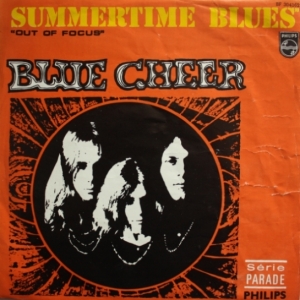
If we limit our look back to only the hardest and heaviest tunes ever to rough up the Top 40, there's still a surprising number that make the cut. Let's start with The Birth of Heavy, and Blue Cheer's epic meltdown 'Summertime Blues', which peaked at #14 in 1968. This has got to be the heaviest song ever to feature in the Top 20. Also in '68, Cream made the Top 10 with 'Sunshine of Your Love' (#6), Iron Butterfly hit #30 with 'In A Gadda Da Vida', and Mountain climbed to #21 in 1970 with 'Mississippi Queen'. In 1969, Led Zeppelin's 'Whole Lotta Love' made it to #4. Zeppelin continued to appear in the Top 40 into the early years of the 70s; 'Immigrant Song'/'Hey Hey, What Can I Do' hit #16 in 1970, 'Black Dog' reached #15 in '71, and 'Trampled Under Foot' crept in at #38 in 1975.
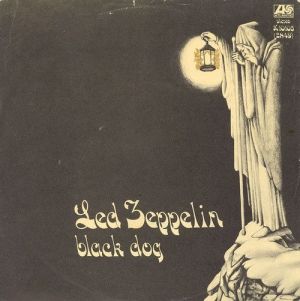
While Black Sabbath never achieved Top 40 status with any of their singles, they were there in spirit. Bloodrock's 'D.O.A.' hit #36; a truly unsettling song (at it's core, it's a re-write of Black Sabbath's 'Black Sabbath'), 'D.O.A'.' was banned from many radio stations due to it's graphically gory lyrics and dark musicality… which only helped boost its popularity. Alice Cooper hit #7 with 'School's Out', another song that radio stations banned. With its subversive lyric, including a line about blowing up a school, it's doubtful that this song would even be recorded today. The Edgar Winter Group's monster instrumental 'Frankenstein' topped the charts (that's #1, kids) in 1972. Blue Oyster Cult's 1976 masterpiece 'Don't Fear the Reaper' (#12) may not qualify as 'heavy', but its epic middle section and morbid lyrics certainly do; the song caused a minor uproar when it was (correctly?) labeled a 'pro-suicide anthem'. This was seriously heavy stuff, kids, and it was also considered pop music.
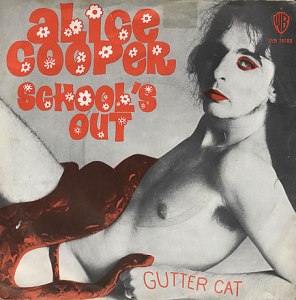
Deep Purple's 'Smoke on the Water' was only ever released as a single in the 'double-A-side' format, with the live version from 'Made in Japan' on the A-side and the studio version from the previous year's 'Machine Head' on the B. Released in May of 1973, it climbed to #4; radio stations played both sides. Also in '73, Rick Derringer's kick-ass 'Rock and Roll, Hoochie Koo' placed at #23, and Sweet's 'Ballroom Blitz' reached #5; Sweet would hit again in 1975 with 'Fox on the Run' (#5) and 'Action' (#20). Alice came back in '73 with three Top 40 placings from the 'Billion Dollar Babies' album: 'Elected' (#26), 'Hello, Hurray' (#35) and 'No More Mr. Nice Guy' (#25), before a bizarre run of four consecutive Top 40 ballads. Not bizarre because the ballads were bad; bizarre because … he was Alice Cooper. And these were ballads.
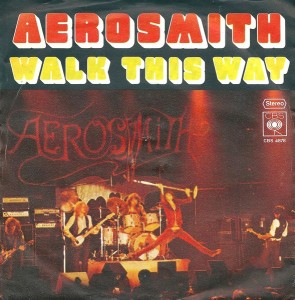
Aerosmith were a dominant presence in the Top 40 for a few years, but didn't exactly play fair… 'Dream On' originally peaked at #59 in 1973, but after the success of the 'Sweet Emotion' single (#36), Columbia re-released 'Dream On' again in 1976, and the song hit #6. 'Walk This Way' has a similar history: when originally released in 1975, the single didn't even chart. In 1976, it was re-released in between the 'Last Child' (#21) and 'Back in the Saddle' (#38) singles, and this time 'Walk This Way' would hit #10. Aerosmith's last visit to the Top 40 in the 70's would be with their cover of the Beatles' 'Come Together' (#23) in 1978, from the Sgt. Pepper's Lonely Hearts Club Band movie soundtrack. Aerosmith would re-appear as chart darlings a decade later, but as a drastically different kind of band (sob).
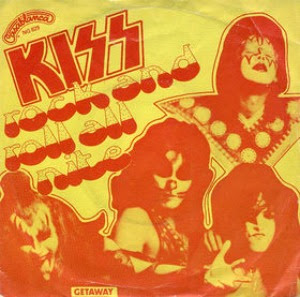
The Hottest Band in the Land paid frequent visits to the Top 40. Kiss hit #12 in 1975 with the 'Alive!' version of 'Rock and Roll All Nite', with 'Shout it Out Loud' (#31) in '76, and with 'Calling Dr. Love' (#16) and 'Christine Sixteen' (#25) in 1977. Two other Kiss singles charted just as high or higher; one was a ballad produced by Bob Ezrin (it worked for Alice). Neither single rocked, so they will not be acknowledged here. For about two years, Foghat were huge; 'Slow Ride' (#20), 'Drivin' Wheel' (#34), and the live version of 'I Just Want To Make Love to You' (#33) were all over the radio. Heart showed up big with 'Crazy on You' (#35) and 'Magic Man' (#9) in '76, and the absolutely awesome 'Barracuda' (#11), another solid candidate for the heaviest Top 20 song evah, a year later. Just goes to show: you can't judge a 45 by its picture sleeve.
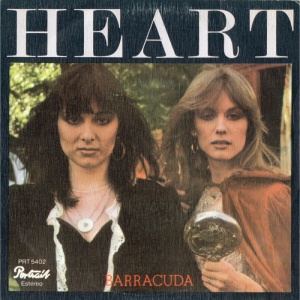
I'll round out our research here with a few more notable one-offs: The manic flute freak-out of 'Hocus Pocus' by Focus reached #9 in 1973, BTO's 'Let it Ride' got to #12 in, and ZZ Top's 'Tush' reached #20 in 1975. In 1976, Thin Lizzy broke big with 'The Boys are Back in Town' (#12), and Queen's 'Bohemian Rhapsody' topped out at #9. In 1977, Ted Nugent returned to the Top 40 (The Amboy Dukes' 'Journey to the Center of Your Mind' hit #16 in 1968) with 'Cat Scratch Fever' (#30), and Ram Jam's recording of the blues tune 'Black Betty' caused the NAACP to call for a national boycott. 'Black Betty' hit #17, which seems to indicate that the boycott failed…
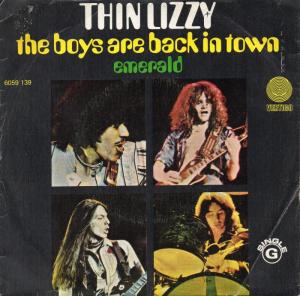
It sounds improbable today, but in the 1970s, the place to go to for hard rock and heavy metal was Top 40 radio. In 1978, the Top 40 format began migrating to the FM dial, where singles mingled with album cuts, diluting the power of the 'Hit Single'. As touring became big business, the hard and heavy bands began working the road the way they had previously worked radio. It was the end of the era when the Top 40 ruled the AM airwaves.
…Until today. The Top 40 format rules the airwaves once again, although these days it seems as though there are only 5 or 6 songs ever aired on the radio, played over and over and over. Today, there is ZERO rock music on Top 40 radio. Kids are finding their rock and metal music on the internet, acquiring it for free, and deleting it when they tire of it. To a child of the 70s sitting on his bed, staring at his battery-powered radio, waiting for the DJ to play 'Carry on Wayward Son' (Kansas, #11/'77) again, the music culture of today would seem like pure science fiction.
(Let me know if you think I've missed anything; everything that appears here is based on my (subjective) opinion of what constitutes hard rock and heavy metal during this era. Besides the omissions specifically mentioned in the article, some Top 40 singles by Jethro Tull, Queen and Nazareth were left out because imho, they just didn't ROCK to a sufficient degree.)
I've got books on my shelves about Iron Maiden, Thin Lizzy, Rush, and Judas Priest. About The Ramones, Blue Oyster Cult, and Cheap Trick. Books about classic albums like Led Zeppelin IV, 'Master of Reality', and 'Deep Purple In Rock'. I have bios written by Gillan, Iommi and Lemmy. One each by Steven Tyler and by Joe Perry. By all 4 members of KISS. The rock books in my personal library range from trashy tell-alls to insightful and historically accurate journalism. The career arcs of my heroes and critical analysis of their works is something I study with great interest. The one book I don't have, and the book I am most anxious to read, is one that, to my knowledge, hasn't been written yet.
Martin Birch: Write your bloody book already.
The name 'Martin Birch' appears on several of the most important hard rock/heavy metal albums of all time. At the end of this post, I've included a list of just some of Birch's production credits. This gentleman has produced/engineered/mixed the soundtracks to our youths He has worked with many of our musical heroes for extensive periods of time; he could probably fill a book with his experiences with Deep Purple alone (seven studio albums), and make his work with Iron Maiden (eight) his Volume II… And still not even scratch the surface of his experience.
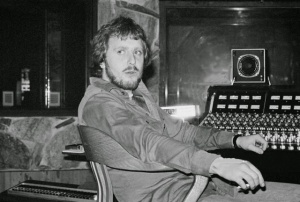
You know he's got stories to tell. Working with Ritchie Blackmore in the studio on a whopping 10 records… Witnessing the sad disintegration of legends like Bill Ward, Tommy Bolin, and Michael Schenker… And being present at the creation of new legends like Bruce Dickinson and Ronnie Dio. Dude was hand-picked to rebuild the stature of a born again Black Sabbath, and of a floundering Blue Oyster Cult. This guy was the first to record the harmonizing guitars of Wishbone Ash's Andy Powell and Ted Turner, and the first to capture the harmonizing voices of Glenn Hughes and David Coverdale. Birch was behind the board in Munich as Ritchie Blackmore's solo single became a solo album, and helmed the Rolling Stones' mobile studio outside Festival Hall in Osaka, Japan in August of 1972… not just witnessing history being made, but recording it… And not merely recording history, but taking part in it; shaping it.
Birch was often credited as producer/engineer as well as for mixing, meaning he was solely responsible for the overall sound of his projects. This often meant getting workable performances from drug addicts, volatile personalities, and in some cases, people with very little talent. In other cases, it meant recording under extremely difficult circumstances, including sessions held in a barn in Steve Harris' backyard (No Prayer for the Dying'), and in the freezing cold hallways of empty hotel in Switzerland ('Machine Head'). Ya, this guy's got stories.
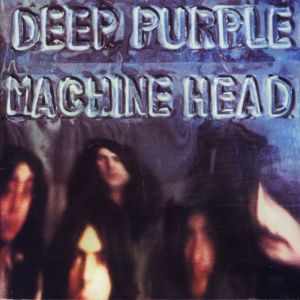
And nicknames! Birch appears in album/single credits with various band-bestowed nicknames sandwiched between his first and last names, such as Black Night, Sir Larry, Basher, Big Ears, Court Jester, Doc, The Farmer, The Wasp, Headmaster, Jah, Live Animal, Masa, Mummy's Curse, Plan B, Pool Bully, The Bishop, The Juggler, The Ninja, and my two favorites: Martin 'Phantom of the Jolly Cricketers' Birch, as he's credited on the Iron Maiden Single 'Run to the Hills' (Live)/'Phantom of the Opera' (Live), and Martin 'Disappearing Armchair' Birch, as credited on Maiden's 'Seventh Son of a Seventh Son' lp. Note: This is not a complete list. A guy with this many nicknames has some great life experiences to share.
But what is it about this man that put him in the same room with these musicians time and again? What does he bring to the table that sets him apart from his peers? I would love to read his own take on why he was the go-to guy for so many iconic bands. Clearly the man has an excellent set of ears, but also must possess an extraordinary talent for inspiring and motivating artistic people. Deep Purple MkII dedicated a song to him on 'Deep Purple In Rock' ('Hard Lovin' Man') and called him 'a catalyst' in the liner notes; high praise coming from one of the more creative and progressive heavy bands of the era. There is a compelling, historically significant story here: how one man helped mold and shape an entire genre for more than 2 decades.
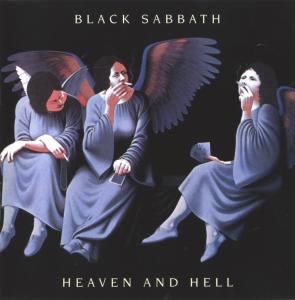
Is there a 'Martin Birch Sound'? Birch's productions do all share a similar overall 'presence'; it's all about sonic space, and balance within that space; much of it happens in the mix, and (as you're noticing as you read this), it's very difficult to describe. To my own ears, Birch creates a space where every instrument can clearly be heard perfectly, and where every element has exactly the 'right' shape and presence in the mix, and works together to create an almost solid, 3-dimensional sound. I would suggest Rainbow's 'Long Live Rock and Roll', Iron Maiden's 'Piece of Mind', and Black Sabbath's 'Heaven and Hell' as prime examples of what a Martin Birch production/mix sounds like. Three very different bands with three vastly different sounds; one consistent sonic presentation.
After Whitesnake's 'Slide it In' in 1984, Birch was commandeered to work exclusively for Iron Maiden. Some have called him Iron Maiden's 'Fifth Member'. Wouldn't Eddie be the fifth? That would make Birch the sixth member, unless you acknowledge Janick Gers, which I don't… But I digress. Martin Birch retired permanently in 1992, after his umpteenth album with Maiden, 'Fear of the Dark'. Drastic changes in recording technology led to subtle changes in Martin Birch's signature presentation, evident in Maiden's 'Seventh Son…' and 'Somewhere in Time' albums, and perhaps Birch knew that his era was drawing to a close. He was a mere 42 years old when he walked away from the business; today, he's a bit past his mid-60's… Mr. Birch, we suggest you add 'The Author' to your impressive collection of nicknames.
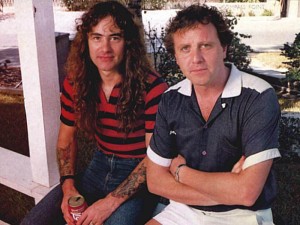
Deep Purple: Deep Purple In Rock, Fireball, Machine Head, Made in Japan, Who Do we Think we Are?, Burn, Stormbringer, Made in Europe, Come Taste the Band, Last Concert in Japan
Black Sabbath: Heaven and Hell, Mob Rules
Rainbow: Ritchie Blackmore's Rainbow, Rising, On Stage, Long Live Rock and Roll
Whitesnake: Lovehunter, Ready an' Willing, Live in the Heart of the City, Come an' Get it, Saints an' Sinners, Slide it In
Blue Oyster Cult: Cultosaurus Erectus, Fire of Unknown Origin
Michael Schenker Group: Assault Attack
Iron Maiden: Killers, The Number of the Beast, Piece of Mind, Powerslave, etc etc etc.
Wishbone Ash: Wishbone Ash, Pilgrimage, Argus
It's 1967. Some students attending Stony Brook University on Long Island have just formed a band. Kind of. 'Soft White Underbelly' was more of a collective than a band, really; their 'manager', a former Student President at Stony Brook U., was a poet, and had arranged for a bunch of dudes to write music for a series of poems he had written. Turns out this guy was also an underground rock critic at Crawdaddy! magazine, and had also invited a buddy of his from Crawdaddy! to contribute lyrics for this Underbelly thing.

The players gelled and became a pretty decent band. Despite hailing from the East Coast, Soft White Underbelly had a distinctly West Coast sound; very San Francisco, man. Their lyrics were… interesting. Cryptic, arty, and as literate as they were tripped-out. In '68, their manager, through connections made at Crawdaddy!, got the band a deal with Elektra records. An album was recorded. And shelved when the lead singer quit.
Underbelly's tour manager was originally local sound engineer who rented out his P.A. system through a local music store. While working with Underbelly, he lived in the house with the rest of the collective, and when the band's singer walked, the group's tour manager became their new lead vocalist. The new line-up of the band scored a show at the Fillmore East, but the set was so badly received that the manager panicked and decided to change the band's name. 'Oaxaca' was born.

Underground music journo connections paid off again, and the band, under the new-new moniker of 'The Stalk-Forrest Group', scored a development deal with Elektra, and recorded an album's worth of material. Again. And, again, an album never materialized; only 300 copies of a promo-only single, "What is Quicksand?" / "Arthur Comics", was accidentally released to radio. What the hell did a band have to do to catch a break?
Turns out a break was right around the corner. New York recording engineer and jingle writer David Lucas ('Reach out and touch Someone', 'Catch That Pepsi Spirit'… those are his) saw the group perform in the city and offered to record a demo. The demo made its way to CBS Records, where an exec told the band's manager, 'What we're really looking for is our own Black Sabbath. If you guys can do that, I can get you a deal.' Sabbath did not have the support of Top 40 Radio or the mainstream music press; in fact, the critics HATED them, but were somehow selling millions of albums. CBS wanted one of those, thank you very much.
Stalk-Forrest's management called a meeting. A monumental decision loomed. Could they pull this off? Did they even want to try? Could five college educated intellectuals from New York, with the aid of their rock critic/poet/lyricist/manager, transform themselves into the 'American Black Sabbath'? Two chances had come and gone already; how many more chances would they get? The bass player balked and quit; the drummer's brother quickly replaced him. The Underbelly-Stalk-Oaxaca collective finally answered CBS with a Yes. But first, another name change was in order.

Blue Oyster Cult would never sound anything like Black Sabbath. It simply wasn't in their DNA. The band did, however, 'darken' their mysterious lyrics and heavy-up their sound as much as they could. Still sounding more like the Jefferson Airplane than Black Sabbath by the time of their debut album in 1972, the band did what it could to ape the Sab's ominous musical oeuvre. Drummer Al Bouchard even stole the riff from Sabbath's 'The Wizard' and wrote 'Cities on Flame (With Rock and Roll)' around it, creating a pretty convincing slab of heavy metal in the process… but it's really the only song on the record that sounded like the work of a proper heavy metal band. Overall, the debut contained little of the excess and heavy-handedness that critics loved to hate about early 70's heavy metal, and therefore was quite well-reviewed. BOC were walking a fine line, trying to have it both ways… but it was working. The transformation had begun.

The 'look' of the band changed drastically, too, morphing from West Coast hippie jam band to East Coast biker badass; their album covers featured stark, labyrinthine structures and foreboding, otherworldly landscapes. Advertising campaigns were purposefully slanted towards the dark side (one of the ads for the '72 debut featured the blurb "Parents and priests warned us of the dangers…", another read "A panorama of violence and suffering on Columbia Records and Tapes"). They even added an umlaut to their logo for that extra hint of menace (sorry, Motorhead fans, BOC did it first). The infamous hooked cross logo was a play on the alchemical symbol for lead, which, in the parlance of chemistry and the elements, is a 'heavy metal'.

By their fourth album, 1974's live 'On Your Feet or On Your Knees', BOC had firmly established themselves as 'the thinking man's heavy metal band' and 'Heavy Metal for people who hate heavy metal.' 'On Your Feet' hit #22 in the US and went gold the year it was released. BOC continued to play both sides of the fence on 1976's 'Agents of Fortune', which would break the band wide open with the huge worldwide hit single 'Don't Fear the Reaper' and sudden multi-Platinum success. Now assisted by lyrics from several writers from outside the band, like Patti Smith, sci-fi writer Michael Moorcock, Jim Carroll, rock critic Richard Meltzer, manager Sandy Pearlman's overriding Imaginos 'concept' (essentially, the occult origins of World War II) had blossomed and fed into the band's overall mystique, an intricately constructed façade that was both credible and marketable. The ruse had worked. The Blue Oyster Cult had found a sublime balance between mystery and irony; between menace and wit. And lasers. And nothing screamed 'METAL!' more metal than that part of their live show where every member of the band, all five guys, played guitar at the same time in the infamous 'Five Guitars' piece?

Personally, while I was a little let down while reading about circumstances of the band's early history and decision to 'go metal' in Martin Popoff's excellent book 'Blue Oyster Cult: Secrets Revealed!' (Metal Blade, 2004) and also in the liner notes for Rhino's 2001 release of 'St. Cecilia: The Elektra Recordings'. But I also felt like Blue Oyster Cult finally made sense. Something had always nagged at me about BOC; a metal band that didn't play metal, didn't embrace the usual heavy metal tropes and trademarks, didn't employ the same chops, songwriting styles, or lyrical subject matter… What made them so different? Why were they so interesting; so strangely appealing? Suddenly I knew.
Members of the band and organization have said in print that they never took the heavy metal aspect of the band seriously, and most fans and even casual listeners will hopefully find a good bit of tongue-in-cheek humor and a healthy dose of irony in the band's catalogue. Their music can be enjoyed on multiple levels; for the dark humor, the exceptional and varied songwriting, or for the complex 'concept' of the band. All angles are equally valid, and work together extremely well. I credit Blue Oyster cult for playing the same game Cheap Trick played so well: operating brilliantly within a genre while simultaneously poking fun at it from the inside. It's a brilliant trick if you can pull it off; satirizing heavy metal music by writing truly exceptional heavy metal music. When was the last time anyone used words like 'fascinating' or even 'interesting' when talking about a heavy metal band?

I suppose the ultimate irony is that Pearlman (briefly) managed both BOC and Black Sabbath, and that in 1980, both bands embarked on a co-headlining romp marketed as the 'Black and Blue' tour. The tour's stop at New York's Nassau Coliseum was filmed, and the resultant tour film, cleverly entitled 'Black and Blue', was released to theatres in 1981. As concert movies go, it was pretty awful; dimly lit and poorly recorded, it's never been released on DVD, as someone connected with one band or the other thinks it would do more damage than good. But the tour/film speaks to the incredible feat that Blue Oyster Cult had somehow pulled off: a band initially signed to mirror and exploit the success of Black Sabbath, was, just 7 years later, battling it out with the Sabs toe-to-toe on stages and in movie theatres for all over the globe. Also, it's made plain for all to see in the film that one band took the evil imagery and doom and gloom music far more seriously than the other… and if you can't tell which one is which, then "the joke's on you…"

It's 2013, the Chinese year of the snake. Year of the Black Water Snake, to be precise. Didn't know they got that specific.
For me, 1978 will always be Year of the Metal, because it was a hugely-impactful year for me, music-wise.
Before 1978, I had been listening to bits of hard rock on the radio for a few years, as a lot of hard rock bands had big singles that were played on AM Top 40 Radio back in 1976 and '77. Anything on the radio that featured loud guitars caught my ear back then: Aerosmith, Nugent, Rick Derringer, Blue Oyster Cult, Alice Cooper, Deep Purple, Foghat. Also my older sister had Zeppelin albums!! But the mighty Kiss reigned supreme in my music universe. Kiss had spent the last few years brainwashing me and kids all over the world into believing that they were, in total fact, "The Hottest Band In The Land". (Gene Simmons probably just got paid because I typed all of those public domain words in that sequence.) And on February 2nd of 1978, I saw them live on the 'Alive II' tour at the Providence Civic Center (since renamed the 'Dunkin Donuts Center'…wtf?) in Rhode Island. Yes, my head exploded; yes, NOW I was a super-fan for life! It sure would take one helluva band to knock Kiss off the throne. No one could ever tell me that Kiss were not actually the Hottest you-know-what in the you-know-where.
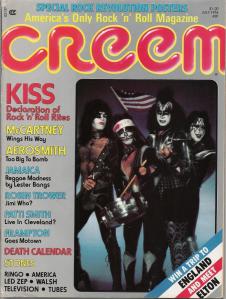
The weekend after I saw Kiss live, I accidentally recorded (on a blank 8-track!) a portion of WAAF's 'Friday Night Six Pack' while playing around with my dad's brand new stereo system. The 'Six Pack' played 6 complete albums during the overnight hours overnight every Friday, some of which were due to be released the following week. I woke up Saturday morning and saw that I had recorded something, and played it all back, and my world changed forever. I had captured most of Van Halen's as yet unreleased debut album. I bought my copy at Music Machine the following Tuesday; $5.77 plus tax. That record knocked me flat on my ass every time I put it on. Suddenly Kiss seemed silly, tame, juvenile; even cheesy. I still loved Kiss (and still do, up through side four of 'Alive II' anyway), but I no longer felt that they were The Greatest Rock Band Of All Time. My mind sufficiently blown, I found that I was suddenly much more receptive to music made by bands that were not Kiss.
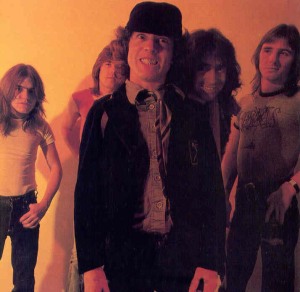
The following month, March of '78, I heard AC/DC's 'Powerage' in it's entirety on the same radio show. I was hooked in the first 30 seconds and listened to the rest of it without moving a muscle, fearing I might lose the great reception I was lucky to be getting on my touch-and-go portable am/fm radio. 'Powerage' has been my favorite album of all time since March of 1978. Now, thirty-five years after it was released, I seriously doubt that I'm going to hear anything that's going to change that.
There are a handful of other great records that came out that year and I worked hard to stay in the loop. It was hard being a fan back then… but if you put the work in, you were amply rewarded. There was no internet in 1978; all we had was WBCN & WAAF, late night TV and Circus, Hit Parader & Creem magazine. I had heard 'Walk This Way' 100 times before I had ever even seen a picture of Aerosmith. In those days, if you liked the single or the picture accompanying the article you just read (for free, while thumbing through a copy at the drug store; hardly ever buying) then you rolled the dice, saved your allowance and scrounged for change, and bought the album, hoping the rest of it was good.
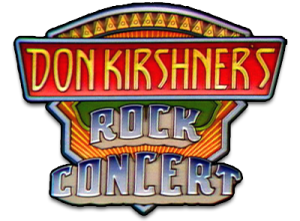
Late night TV was a goldmine. Of course, you had to sit through a lot of disco and R&B to see anyone holding a guitar. I saw Cheap Trick on the TV show 'Don Kirshner's Rock Concert' in March and bought their 'in Color' record the following week; 'Heaven Tonight' came out in May and bought it without hearing a note. UFO appeared on Kirshner's show with a video of 'Only You Can Rock Me'—one more copy of 'Obsession' sold. In October, Ted Nugent hosted an airing of 'Midnight Special' that featured AC/DC, Cheap Trick, Thin Lizzy, Aerosmith, Golden Earring, and of course, His Nugeness. That same month, AC/DC's first live album, 'If You Want Blood, You've Got It' was a no-brainer. I remember riding my bike back from the mall in the rain with 'If You Want Blood…' in a plastic bag (an awkward thing to try to carry while riding a bike, let me tell you), afraid the I was going to drop it or wreck my bike… but more worried about the record.
It was a huge year for new discoveries. I snapped up Rainbow's 'Long Live Rock 'n' Roll', Rush's 'Hemispheres', Judas Priest's 'Stained Class', all released in 1978. So many excellent live records that year as well: Frank Marino and Mahogany Rush's 'Live', Blue Oyster Cult's 'Some Enchanted Evening', Scorpions' 'Tokyo Tapes', Aerosmith's 'Live Bootleg' and Thin Lizzy (who also had an extended live showing on 'Kirshner's' in October) released their legendary 'Live and Dangerous'. Even the newer generation of 'second tier' hard rockers like Angel and Starz put out strong albums ('White Hot' and 'Coliseum Rock', respectively). What a fucking year.
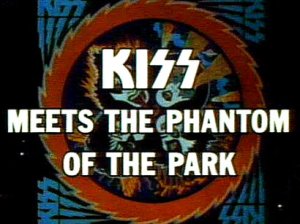
Needless to say, my musical tastes were formed that year, and truth be told, they haven't changed all that much. 1978 was the year I moved from slavish worship of a single band to an enduring fascination with an entire genre. Kiss validated my decision to move on by releasing 4 solo albums, which were 75% junk, and then by unleashing the complete disaster 'Kiss Meets the Phantom of the Park' TV debacle. But I suppose one could say that for many, Kiss served a valuable purpose: initiating those of us in a certain age group into the world of rock n' roll. Kiss was like a 'gateway drug', first getting you hooked and then leading you to the harder stuff.
Source: https://mayobat.wordpress.com/tag/blue-oyster-cult/
0 Response to "J Geils Blue Oyster Cult at Long Island Arena"
Post a Comment